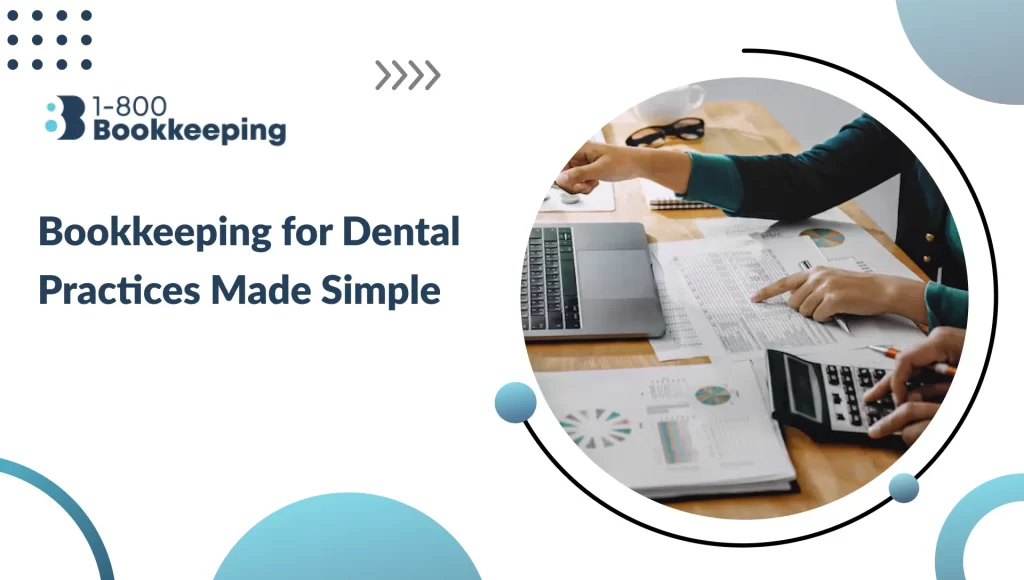Internal controls are critical for small businesses to ensure financial stability, mitigate risks, and maintain operational efficiency. These measures encompass various policies and procedures aimed at safeguarding assets, promoting regulatory compliance, and ensuring accurate financial reporting. With a strong internal control system, small businesses can significantly improve their financial accuracy and reduce the likelihood of fraud, creating a secure and reliable business environment.
Understanding Internal Controls
Internal controls refer to the processes implemented within a business to safeguard the integrity of its financial and accounting information. They are designed to enhance accountability and prevent fraudulent activities. Internal controls are especially important for small businesses, as they help identify and rectify errors, ensure adherence to legal standards, and support reliable financial reporting.
Benefits of Implementing Internal Controls in Small Businesses
Enhancing Financial Accuracy
Internal controls play a vital role in improving financial accuracy. With well-defined checks and balances, businesses can verify that financial transactions are recorded correctly and that financial statements are reliable and accurate.
Reducing the Risk of Fraud
Preventing fraud is one of the key objectives of internal controls. By implementing clear policies, segregating responsibilities, and regularly reviewing financial activities, businesses can minimize the risk of fraudulent behavior and detect suspicious actions early.
How 1800Bookkeeping Can Help
At 1800Bookkeeping, we are committed to helping small businesses implement effective internal controls to ensure financial security and operational success.
- Expert Bookkeeping Services: Our team provides comprehensive bookkeeping services, ensuring accurate recording of all financial transactions and supporting a strong internal control foundation.
- Financial Reporting and Analysis: We deliver detailed financial reporting and analysis to help you monitor and evaluate the effectiveness of your internal controls, ensuring transparency and accuracy.
- Tailored Solutions for Your Business: We offer personalized services based on your business’s unique needs, helping you build a resilient control environment and improve your financial management.
Interested in strengthening your internal controls? Contact us today to learn how we can support your financial success and help you build a more secure business.
What Are Internal Controls?
Internal controls are systematic procedures established to safeguard a company’s assets, ensure the accuracy of its financial records, and promote operational efficiency. Their primary purpose is to protect the organization’s resources and provide a reliable foundation for financial reporting.
Ensuring Accuracy and Reliability
By introducing effective internal controls, businesses can be confident that their financial data is accurate and trustworthy. This accuracy is vital for making well-informed business decisions and maintaining the confidence of stakeholders, such as investors, lenders, and employees.
Key Components of Internal Controls
- Control Environment: The control environment is the foundation for internal controls, encompassing the organization’s culture, management’s values, and operational structure. A strong control environment promotes ethical behavior and honesty across the company.
- Risk Assessment: Risk assessment identifies and evaluates potential risks that could affect the business’s ability to achieve its objectives. By understanding these risks, businesses can implement effective controls to mitigate them.
- Control Activities: Control activities include policies and procedures addressing identified risks. These measures often involve authorizations, verifications, reconciliations, and the segregation of duties to ensure accuracy and accountability.
- Information and Communication: Internal controls rely on the timely and accurate flow of information. The organization must identify, communicate, and share relevant information to ensure employees can effectively fulfill their responsibilities.
- Monitoring Activities: Monitoring ensures that internal controls are functioning as expected. Regular reviews and audits help identify control system weaknesses and provide opportunities for continuous improvement.
Types of Internal Controls
Preventive Controls
Preventive controls are designed to deter errors or irregularities before they occur. These controls often involve restricting access to financial information and setting clear transaction authorization processes.
Examples and Implementation: Examples of preventive controls include access restrictions to sensitive systems, requiring approvals for high-value transactions, and providing ongoing employee training. Hence, they understand their roles and responsibilities.
Detective Controls
Detective controls identify and address issues after they have occurred. These controls help businesses discover and rectify errors or irregularities in their financial records.
Identifying and Addressing Issues: Detective controls include conducting regular audits, performing bank reconciliations, and verifying inventory counts to ensure all records align with actual assets.
Corrective Controls
Corrective controls aim to fix problems identified by detective controls. Businesses can enhance their internal control processes by addressing errors and preventing future occurrences.
Steps to Rectify Problems: Correcting errors identified during audits, adjusting procedures to minimize future risks, and providing additional employee training is essential for effectively addressing issues.
Designing Effective Internal Control Procedures
Assessing Your Business Needs
It is important to assess your business’s specific needs before establishing internal controls. This evaluation should consider your operations’ size, industry, and complexity.
Identifying Key Areas of Risk
Identify the areas where your business is most vulnerable to errors or fraud. Common risk areas include cash handling, inventory management, and financial reporting.
Developing Control Policies and Procedures
Create clear policies and procedures to mitigate identified risks. Document these procedures carefully and ensure they are effectively communicated to all employees.
Documentation and Communication
Documenting control procedures is essential for maintaining clarity and accountability. Provide written policies, conduct employee training sessions, and promote open communication to ensure everyone understands their responsibilities.
Implementing Segregation of Duties
Segregation of duties is a crucial internal control principle that divides responsibilities among employees, reducing the likelihood of errors or fraud.
Minimizing Risk Through Role Division
No single employee should handle every aspect of a financial transaction to reduce risks. Segregating tasks such as authorization, record-keeping, and reconciliation helps create a system of checks and balances.
Preventing Fraud in Small Businesses
Common Types of Fraud in Small Businesses
- Employee Fraud: Employee fraud can involve embezzlement, record falsification, or asset theft. Small businesses are often more vulnerable to employee fraud due to fewer controls and close personal relationships within the organization.
- External Fraud: External fraud comes from individuals or entities outside the business, such as cyber-attacks, vendor fraud, or fraudulent customer transactions.
Strategies to Prevent Fraud
- Establishing a Code of Conduct: A well-defined code of conduct sets clear ethical standards for employees and guides acceptable behavior. Regularly reinforcing this code is key to maintaining an ethical workplace.
- Regular Audits and Reviews: Regular audits and reviews of financial records and controls help businesses detect and prevent fraudulent activities by ensuring that internal controls remain effective.
The Role of Technology in Internal Controls
Automating Financial Processes
Technology enhances internal controls by automating financial tasks, reducing manual errors, and ensuring consistency in financial reporting.
Benefits of Accounting Software: Automated accounting systems improve accuracy by reducing manual data entry, streamline financial processes, and provide consistent financial reports that align with compliance standards.
Using Data Analytics for Monitoring
Data analytics tools enable businesses to monitor large financial data sets to spot trends, detect anomalies, and identify potential fraud.
Identifying Irregularities: By monitoring transactions through data analytics, businesses can identify unusual activities early, allowing for timely investigations and corrective actions.
Enhancing Security Measures
Technology helps protect sensitive financial data by restricting unauthorized access and defending against cyber threats.
Protecting Financial Data: Encryption, access controls, and regular software updates help protect sensitive financial data from breaches or theft.
Conducting an Internal Audit
Purpose and Benefits of Internal Audits
Internal audits assess a company’s internal controls, ensuring compliance and operational efficiency. They help identify weaknesses and areas for improvement.
Ensuring Compliance and Efficiency: Conducting internal audits helps businesses ensure compliance with internal policies and external regulations while identifying opportunities to enhance operational efficiency.
Steps to Perform an Internal Audit
- Planning and Preparation: Define the scope of the audit, gather relevant documents, and set clear objectives for the audit to ensure it aligns with business goals.
- Executing the Audit: Review documentation, test the effectiveness of internal controls, and interview employees to gain insights into their responsibilities.
- Reporting Findings: After completing the audit, draft a report detailing findings and recommending corrective actions and share it with management and stakeholders.
Best Practices for Successful Audits
- Regular Scheduling: Schedule internal audits regularly to ensure that controls continue functioning as intended and that improvements are made as needed.
- Involving Stakeholders: Engage key stakeholders in the audit process to ensure transparency, gather valuable insights, and gain support for implementing recommendations.
Training and Educating Employees
Importance of Employee Awareness
Employee awareness is essential for the success of internal controls. Employees must understand the importance of these controls and their roles in maintaining them.
Building a Culture of Integrity: A culture of integrity encourages ethical behavior and personal accountability, creating an environment where internal controls are supported and followed.
Training Programs for Internal Controls
- Regular Workshops and Seminars: Conduct training sessions, workshops, and seminars to educate employees about internal controls, fraud prevention, and ethical behavior.
- Encouraging Open Communication: Encourage employees to report concerns or suspicious activities through open communication channels, ensuring they feel safe without fear of retaliation.
Monitoring and Reviewing Internal Controls
Continuous Improvement of Control Systems
Internal controls must evolve as the business grows and adapts to new risks and changes. Continuous monitoring ensures controls remain effective.
Adapting to Business Changes: Regularly review and adjust your internal controls to address emerging risks and evolving operational needs.
Regular Review and Updates
Review and update internal control procedures periodically to remain relevant and effective.
Keeping Controls Relevant: Assess whether existing controls continue to address the business environment and make necessary adjustments to remain resilient to new challenges.
Measuring the Effectiveness of Controls
Key Performance Indicators: Use KPIs such as error rates, fraud incidents, and audit results to measure internal controls’ effectiveness and identify areas for improvement.
Conclusion
Implementing effective internal controls is crucial for the success and security of small businesses. These controls ensure financial accuracy and compliance with regulations and play a significant role in preventing fraud and enhancing operational efficiency. By understanding and applying the key components and types of internal controls, small business owners can design tailored procedures that address their unique risks and needs. Continuous monitoring, regular employee training, and leveraging technology strengthen these controls, providing a robust framework for business stability and growth. Partnering with experts like 1800Bookkeeping can further streamline the process, ensuring that your internal controls remain effective and aligned with your business objectives. Strengthening your internal controls today will pave the way for your business’s secure and successful future.
Don’t let Bookkeeping Overwhelm You. Hire 1-800 Bookkeeping
Running a business is demanding, and keeping track of your finances can be a never-ending chore. Many business owners need help with the complexities of bookkeeping, which can leave them frustrated and behind.
1-800 Bookkeeping offers expert services to streamline your financial processes and empower you to make informed decisions.
Our team of seasoned professionals understands the unique challenges businesses of all sizes face. We can help you:
- Free Up Valuable Time: Offload your bookkeeping tasks to our dedicated professionals.
- Gain Peace of Mind: Ensure your financial records are accurate and up-to-date.
- Make Smarter Decisions: Get actionable insights into your business performance through clear and concise reports.
- Feel Confident: Make informed financial decisions based on reliable data.
Don’t let bookkeeping hold you back from achieving your business goals. Contact 1-800 Bookkeeping today for affordable bookkeeping solutions.
FAQs:
- What are internal controls, and why are they important for small businesses?
Internal controls are processes and procedures designed to safeguard assets, enhance financial accuracy, and prevent fraud. For small businesses, they are essential to ensure accurate financial reporting and operational efficiency while mitigating risks.
- What are the key components of internal controls?
The key components of internal controls include the control environment, risk assessment, control activities, information and communication, and monitoring activities. These components work together to ensure financial accuracy and protect business resources.
- How can small businesses prevent fraud through internal controls?
Small businesses can prevent fraud by implementing preventive and detective controls, establishing clear policies, segregating duties, conducting regular audits, and promoting a culture of integrity.
- How does technology enhance internal controls?
Technology helps automate financial processes, improve data accuracy, and enhance security measures. By using accounting software and data analytics, businesses can detect anomalies and protect financial data from fraud or cyber threats.
- What role do internal audits play in maintaining internal controls?
Internal audits assess the effectiveness of a company’s internal controls and help identify weaknesses. They ensure compliance, promote operational efficiency and provide recommendations for improving control systems.





